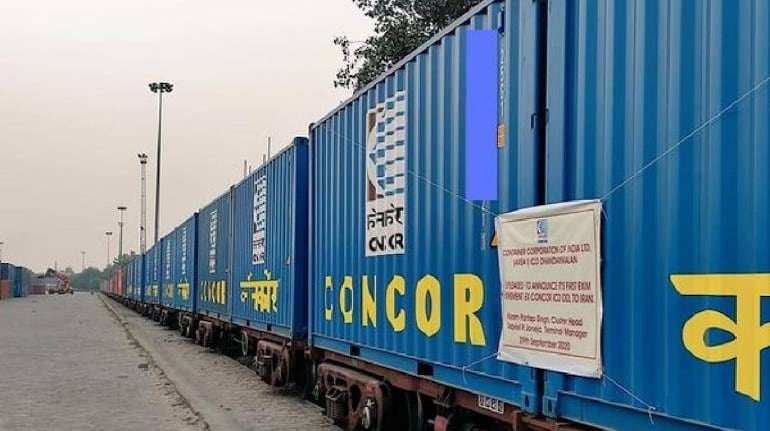

The history of the container train business in India goes back to the inception of CONCOR, set up as a wholly-owned subsidiary under the Ministry of Railways (MoR) in 1988. The container train industry since then has gone through a transformation with an increasing focus on intermodal transport, both for domestic and EXIM cargo. The role of CONCOR has been crucial in shaping the industry. Over the years, 45.2 percent stake of CONCOR have been divested based on the strategic plans of the government. Currently, the government holds a 54.8 percent stake in CONCOR.
The plans to disinvest another 30.8 percent of stake valued about Rs 14,000 crore with controlling interest are in the advanced stage. The Department of Investment and Public Asset Management has conducted road shows recently to gauge the interest of potential buyers. The government is likely to release the Expression of Interest anytime soon.
Given the industry structure, the role of CONCOR, and the entry of 16 more players since 2006 when the sector was opened for privatisation, this article reflects on issues that surface time and again questioning the level playing field between CONCOR and other players.
Now that the CONCOR itself is going for privatisation through a major disinvestment, these issues have greater relevance as the control of the company will be shifting from public to private. Given CONCOR’s market share and assets (movable and immovable), selling the company as a single entity will give an unfair competitive advantage to the potential buyer, and create further distortions in the industry, which has one large player and many struggling small players.
The container train industry currently has 17 players. CONCOR, which was a monopoly player earlier, continued to have an inherent advantage over other players due to its large terminal base, container rakes/wagons, containers, and handling equipment — the most critical assets for the business. The differential and favourable terms that CONCOR enjoyed over the years have created a lack of a level playing field. It was due to these inherent advantages that CONCOR still dominates the industry with 64 percent of the market share. The terminals and movable assets of CONCOR are two major issues to be considered before disinvestment.
Strategic buyers are eyeing the strong terminal base of CONCOR that will give them a multi-fold competitive advantage over other players. The valuation of the company will greatly depend on the value of terminals. CONCOR has 61 terminals across India, 25 of which are built on land leased by the MoR. The land lease policy has gone through several changes over the years. In 1990, the MoR entered into a 30-year agreement with CONCOR that lease rentals would be based on the twenty foot equivalent units (TEUs) handled.
In 2005, when the sector was about to be privatised, the land lease policy was changed to higher of 6 percent of market value or the TEU rate for new terminals. The market value basis turned out to be significantly higher than the TEU rate. The existing 41 CONCOR terminals were to be continued on a TEU basis until 2020. The new players, however, had to purchase land on the market value for setting up the terminals. Interestingly, CONCOR did not acquire any railway land for the 36 new terminals set up after 2005.
The terminals built on railway land were effectively being used as captive facilities by CONCOR since they set high terminal access charges for the new players. Given inadequate common user container rail terminal facilities, and the new terminal set-up being highly capital intensive, the number of terminals added by other players collectively is much lower than CONCOR. The issue of parity in terminal access remained unaddressed. With the lapse of the 1990 agreement, CONCOR surrendered 16 terminals handling low volumes over the recent two years.
After the Cabinet approval in 2019 allowing 30.8 percent disinvestment of CONCOR, and considering the National Logistics Policy, the land lease policy was reviewed once again. In September, the Cabinet slashed the annual land lease fee to 1.5 percent of the market value of the land. The lease period was increased to 35 years from the current five years. This was done to make the railway land use more lucrative for potential rail users. However, anybody investing in a rail terminal in such land would have to make it a common user terminal. Further, any party including CONCOR on the 6 percent regime would have to give up their land and facilities, and rebid competitively if they wanted the 1.5 percent benefit. This new policy is not likely to benefit CONCOR, which may want to continue its strategic control on the 25 railway-land leased terminals.
Despite the above, CONCOR is a very attractive proposition with an asset base of 61 terminals, and over 350 rakes. A controlling interest sale would create a private monopoly which would be contrary to the objective of the container train policy. An unbundled approach, where the terminals are bid out separately to a few third-party professional terminal management companies, which would provide non-discriminatory access to all players, would be more in line with the policy objective. This is in line with other transport sectors where the terminals and line operators are naturally unbundled, like airports and airlines, and ports and shipping companies. Such terminal management companies are more likely to take advantage of the common user requirement of the new land lease policy. This approach might come at a cost of lower bid value of CONCOR but will help the industry in the long run.
Another aspect to be considered is the unfair competitive advantage to the potential buyer due to the high share of movable assets (container rakes, containers, gantry cranes, reach stackers) owned by CONCOR. This will again bring distortions in the industry by making one player monopolistic. The disinvestment should involve breaking the entity into at least two, and provide opportunities for more than one player to acquire stake in the company. AT&T in the United States is an example where the incumbent company was split to provide a level playing field to new entrants.
While the bid value of a single entity will be higher than the sum of the bid values of unbundled entities, it brings us back to the objective of allowing competition in the container rail business by breaking CONCOR, given the industry structure — to bring efficiency and effectiveness gains through competition.
G Raghuram is former Director, Indian Institute of Management Bangalore, and Rachna Gangwar is Associate Professor and Head, Centre for Surface and Air Transport, Adani University. Views are personal, and do not represent the stand of this publication.
Discover the latest business news, Sensex, and Nifty updates. Obtain Personal Finance insights, tax queries, and expert opinions on Moneycontrol or download the Moneycontrol App to stay updated!